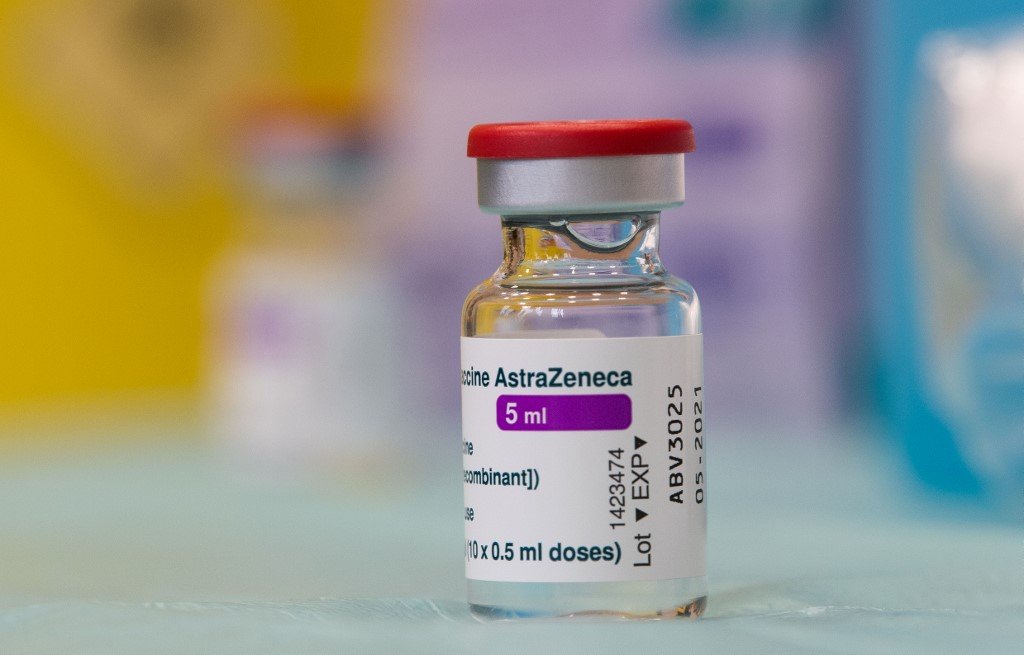TGA finds NSW woman’s death ‘likely’ linked to AstraZeneca vaccine
The death of a NSW woman who developed rare blood clots days after receiving the AstraZeneca vaccine is “likely” linked to the jab, Australia’s medicines regulator has found.
Genene Norris, aged 48, was given the jab on the morning of April 8 just hours before the government recommended Pfizer be preferred for Australians under 50.
“We can’t believe this time last week she was with us and now she is gone,” a statement from her family said.
“We know as much as the public knows as further medical investigations need to take place.”

The Therapeutic Goods Administration confirmed the timing of Ms Norris’ jab, saying the clotting was “likely to be linked to the vaccination”.
“The TGA Vaccine Safety Investigation Group (VSIG) met late today and concluded that a recently reported case of thrombosis (blood clots in the arteries and veins) with thrombocytopenia (low platelet count) is likely to be linked to vaccination,” it said, in a statement issued on Friday night.
“VSIG reviewed a report about a 48-year-old woman who was vaccinated in New South Wales and admitted to hospital with an extensive thromboembolic event and thrombocytopenia (TTS) four days after receiving the AstraZeneca COVID-19 Vaccine.
The woman developed “extensive” blood clotting four days after receiving the vaccine before dying in hospital.
The TGA said VSIG’s review was complicated by the “patient’s underlying medical conditions, including diabetes, some other medical conditions as well as some atypical features”.
9News can confirm the woman was not a frontline health worker, but her medical issues put her in the 1B rollout category.
The group made the call despite some differences to what had been seen in previous cases of the rare clotting disorder, including the absence of specific antibodies found in most other examples.

“Despite the atypical clinical features and the negative antibody test, in the absence of an alternative cause for the clinical syndrome, VSIG believed that a causative link to vaccination should be assumed at this time,” the TGA said.
Some lab results are still pending so the regulator will review the decision if those results or an autopsy point to a different cause of the clots.
The woman, who died in John Hunter Hospital on Thursday, was the third Australian to develop the specific type of clots associated with the AstraZeneca vaccine.
Given at least 885,000 doses of the jab have been administered in Australia, that puts the local frequency at one in 295,000, roughly in line with the one in 250,000 figure reported by British authorities.
Chief Medical Officer Paul Kelly said the clots were fatal in about a quarter of patients
The TGA says the rare clotting disorder, referred to as thrombosis with thrombocytopenia syndrome (TTS), is not linked to more common types of blood clots, which affect about 50 Australians a day, separate to vaccination.
The regulator said common side effects, such as fever, sore muscles, tiredness and headaches, which usually begin within 24 hours of receiving the jab and lasted a day or two, are not of concern “unless severe or persistent”.
Reports of the rare clotting disorder have been received between four and 20 days after immunisation, and have usually been severe enough to require hospitalisation.
“Consumers should seek immediate medical attention if, a few days after vaccination, they develop symptoms such as a severe or persistent headache or blurred vision, shortness of breath, chest pain, leg swelling or persistent abdominal pain unusual skin bruising and/or pinpoint round spots beyond the site of injection,” the TGA said.

NSW Premier Gladys Berejiklian on Friday morning offered her sympathies to the woman’s family.
“We just extend our heartfelt condolences to the family and loved ones during this difficult time,” she told Today.
Ms Berejiklian said she believed the “vast majority” of citizens wanted to get a vaccine, despite the highly-publicised incidences of rare adverse reactions.
“It is important for us to be really well-advised,” she said.
“If anyone has concerns, you should ask your GP.”








